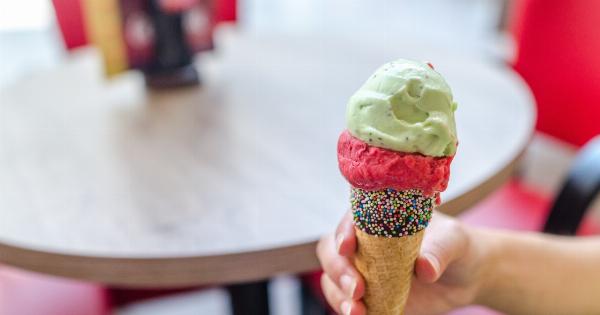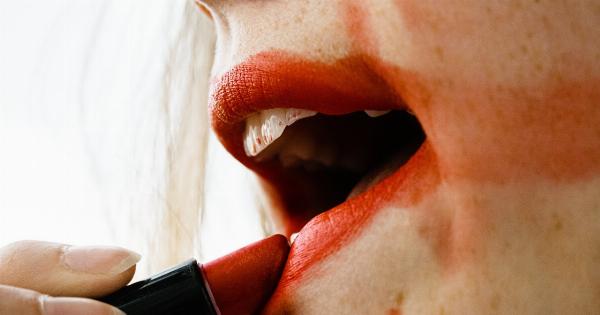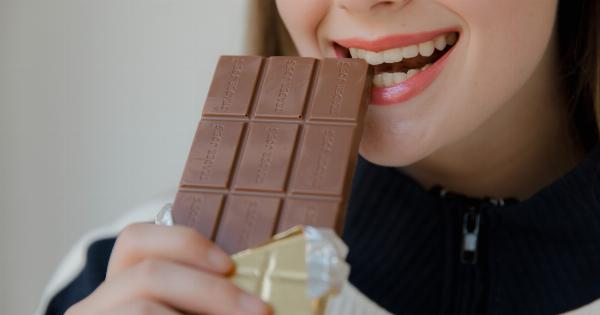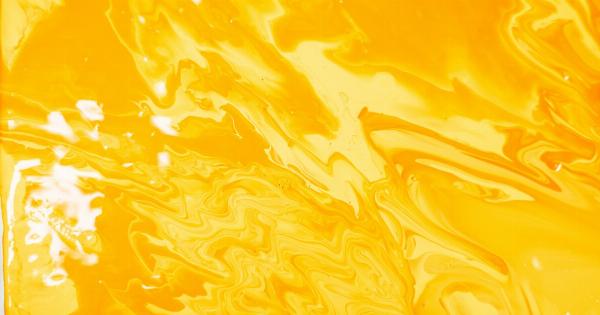Having a bright and white smile is often considered a sign of good oral health and hygiene. However, there are several factors that can lead to teeth discoloration, including the foods we consume on a regular basis.
While some foods can help maintain or even enhance the whiteness of our teeth, others can cause stains and discoloration. In this article, we will explore the top foods that are known to cause teeth discoloration.
1. Coffee and tea
Both coffee and tea are common beverages consumed worldwide. Unfortunately, they contain tannins, which are acidic polyphenols that can easily cause stains on tooth enamel.
The dark pigments present in these beverages can gradually lead to yellowing or browning of teeth over time.
2. Red wine
Red wine is rich in chromogens, which are intense color pigments that easily adhere to tooth enamel. The acidic nature of wine also erodes the enamel, making it more prone to staining.
Regular consumption of red wine can result in deep stains that are hard to remove.
3. Berries
Berries such as blueberries, blackberries, and cranberries are highly nutritious, but their deep hues can cause teeth discoloration. The natural pigments in these fruits, known as chromogens, attach to tooth enamel and stain its surface.
It is advisable to rinse your mouth with water after consuming berries to minimize potential staining.
4. Tomato-based sauces
Tomato-based sauces, commonly used in pasta dishes and curries, are highly acidic and can lead to teeth staining. The deep red color of tomato sauce contains chromogens that adhere to tooth enamel and cause discoloration.
It is recommended to consume these sauces in moderation and brush your teeth afterward.
5. Colored sodas and sports drinks
Colored sodas and sports drinks are loaded with artificial coloring agents, which can stain teeth. The high sugar content in these drinks also promotes the growth of bacteria, leading to tooth decay, enamel erosion, and further discoloration.
6. Soy sauce and balsamic vinegar
Soy sauce and balsamic vinegar are delicious additions to many dishes, but their dark color pigments can stain teeth.
These condiments have highly acidic properties that make tooth enamel more susceptible to discoloration when regularly consumed in excessive amounts.
7. Curry
Curry, a flavorful blend of spices commonly used in Indian and Asian cuisines, contains turmeric, which has intense yellow pigments. These pigments can penetrate tooth enamel and cause stubborn stains.
It is recommended to brush your teeth shortly after consuming curry to minimize potential discoloration.
8. Citrus fruits and juices
While citrus fruits such as oranges, lemons, and grapefruits are packed with vitamin C, their high acid content can erode tooth enamel. As the enamel wears down, the underlying yellow-colored dentin becomes more visible, leading to teeth discoloration.
Consuming these fruits in moderation and rinsing your mouth with water afterward can help protect your teeth.
9. Popsicles and artificially colored candies
Popsicles and brightly colored candies often contain artificial food coloring that can stick to tooth enamel and stain teeth. The prolonged exposure to these dyes can result in long-lasting discoloration.
10. Dark chocolate
While dark chocolate is known for its potential health benefits, its dark color can also lead to teeth discoloration. The dark pigments in chocolate can stain tooth enamel, although not as severely as coffee or red wine.
Conclusion
While keeping our teeth white and bright is desirable, it’s important to remember that moderation is key.
Consuming the aforementioned foods and beverages in moderation, rinsing the mouth with water after consumption, and maintaining good oral hygiene practices such as regular brushing and flossing can help minimize teeth discoloration. If you are concerned about the discoloration of your teeth, it is advisable to consult a dental professional for appropriate advice and treatment options.






















